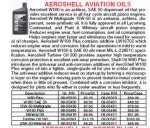Hm. I'd recommend doing some searches in the EAA (Experimental Aircraft Association) websites, as they work with classic certified aircraft, restored warbirds, and amateur-built aircraft.
I'm curious about where you found that statement. As a pilot, I'd think the best reason not to use auto oil in a certificated aircraft (commercially built) is that the manufacturer did not allow it, and you'd be risking your license if a crash occurred using non-aviation approved oil (even if it had nothing to do with oil).
Obviously, there are air-cooled cars (VW beetle, Corvair, etc) that use regular auto oil, air cooled engines in the civilian generator, lawn care, and tractor markets, and motorcycles that use automotive (or automotive style) oils just fine. I don't think the key is air versus water cooled, especially when so many V-12 engines in WWII were liquid cooled (P-40 Warhawk, Mustang, P-38 Lightning, ME-109, FW-190, Spitfire). An airplane's power curve is a lot like a generator with a high constant speed, but aircraft must expect wider temperature variations (below freezing at high altitude on a 65 degree airport day).
I doubt that brass corrosivity would be an issue with either oil, as most engines have some brass components in them somewhere. Oil corrosion is a byproduct of water in the oil, from condensation, and the ability of the oil to buffer that acid formation is important (and one thing that I understand aircraft oils are formulated for - since the vehicle often sits several days between flights).
The oil additives are an issue, which is why motorcycles recommend 10w-40 instead of other grades, as that grade usually has the right additives to help the transmission (and why that grade does not carry the 'energy conserving' mark inside its ratings circle. As I understand it, the engine part of the motorcycle system would be fine with anything.
Quoting the Pilot's Operating Handbook for Cessna 172M (1976) they require:
Aviation Grade SAE 10w30 or SAE30 between 0F and 70F, SAE 10w30 or SAE20 below 10F. They also cite MIL-L-22851 except for the first 25 hours when a straight mineral oil of MIL-L-6082 is used.
I'd expect that one key difference in the aviation grade oils is bureaucratic; the aviation grade oil will have better records to prove to the FAA after a crash that the oil from that manufacturing lot was up to snuff. It seems to be a key difference in many other aircraft parts, such as belts and hoses.
Some of the experimental aircraft owners I know use a good synthetic auto oil in their engines, and some use aircraft oil. Many of them are using converted auto engines to fly. I expect the military used a good quality land based oil for the generators, so I wouldn't think you'd cause a problem doing the same.
The 100LL fuel is a low-lead, but that's compared to the over 130 octane that used to be available, which was a higher concentration by far. There is still notable lead in the fuel. As I understood it, the lead tends to foul the spark plugs and can build up on the valves more so than getting into the oil. I mostly got working on cars as lead was being phased out. I know there were a lot of discussions in magazines about changing the valve seats in 60s-70s musclecars during restoration so they could handle unleaded, as the lead helped reduce exhaust valve seat erosion.
There are allowances to let low-horsepower certificated aircraft fly using auto gas (91/93 unleaded) IF there is no ethanol in the fuel,and the right paperwork has been filed. So clearly there are a lot of similarities between the oils and fuels at this point.
I'd say if the PM's for your generator specify an auto grade oil, then run with that, since the designers of the engine knew they'd be using that oil, and it's probably cheaper than buying aircraft oil. I always figure that oil I'm buying today is better than racing oil from 15 years ago, so I don't get too worried about oil quality (other than not buying the cheapest stuff Auto Zone sells - it smells funny).




